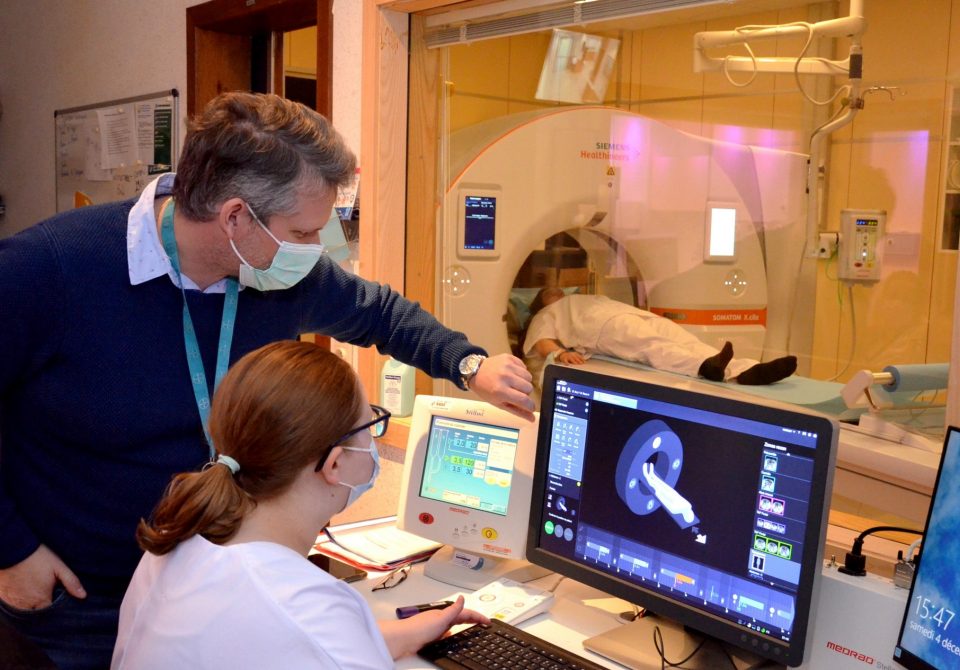
In brief
A profession combining science and human contact, using state-of-the-art medical technologies.
Strengths of the Bachelor: Medical Imaging Technologist
- The medical imaging technologist programme is offered through a close partnership with UCLouvain and Saint-Luc University Hospital (access to their laboratories and examination rooms) as well as with Dutch-speaking and French University Colleges.
- The participation of imaging practitioners (radiologists, radiographers, nurses and technologists) ensures that the programme and teaching is always at the leading edge of practice.
- Laboratories with modern high-performance equipment.
- · A range of work placement options in diverse fields starting in block 1
Good to know
With your Medical Imaging Technologist Bachelor you will obtain accreditation and a visa to enable you to practice. In this allied health care profession, there is a growing need for technologists proficient in the use of ever more and increasing sophisticated equipment.
Graduates therefore have no difficulty obtaining a post.
About the job
The profession of Medical Imaging Technologist requires versatility. It is constantly changing and is practiced within a team setting. The Medical Imaging Technologist provides patient care using the latest medical technologies.
The principal sub-fields of medical imaging are: radiodiagnosis, CT Scanner, magnetic resonance imaging, ultrasound, nuclear medicine, radiation therapy and interventional radiology
The Programme of Study
Programme3 years - 180 credits
-
Block 1
Students strengthen their basic scientific knowledge while also learning about their future profession. In block 1 they are also introduced to the hospital environment.
-
Block 2
Block 2 addresses more specific medical imaging subjects. Practicals prepare students for their hospital work placements: radiodiagnosis, patient care, MRI, CT Scanner and nuclear medicine.
-
Block 3
Most of the third year is devoted to hospital work placements. Students attend specific courses and specialised practicals, 20 % of the annual workload is devoted to a final-year dissertation.